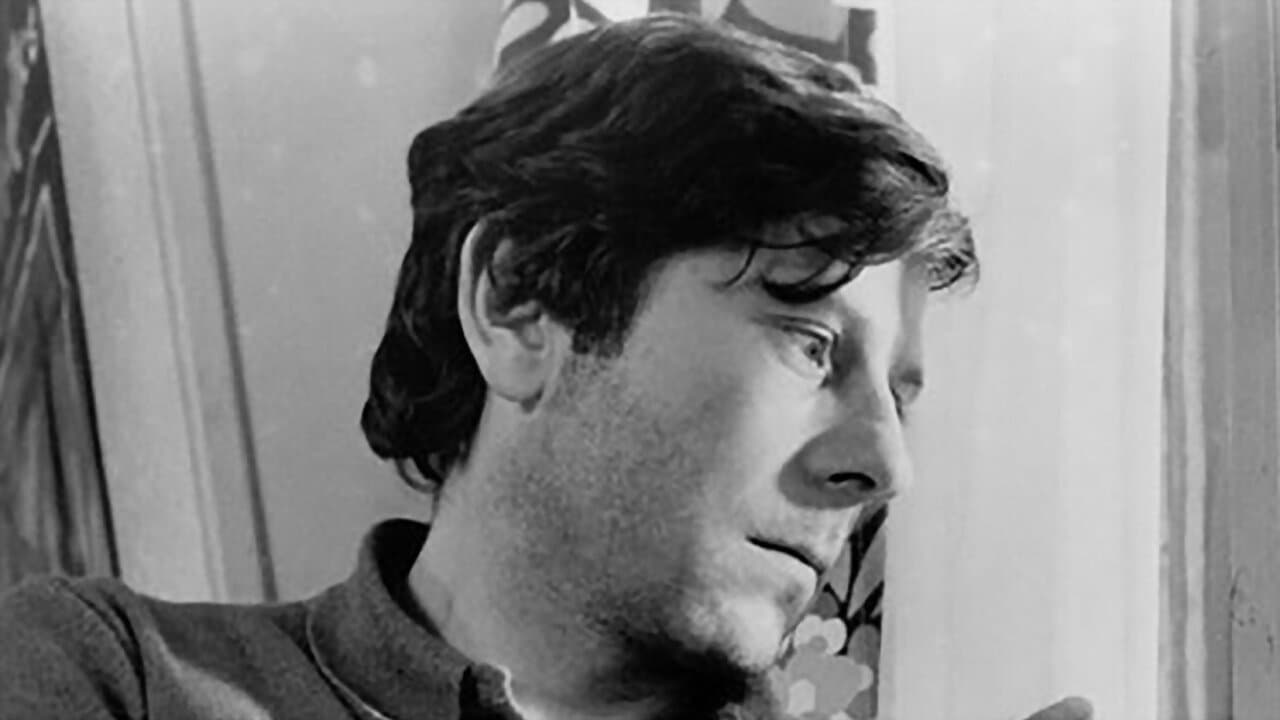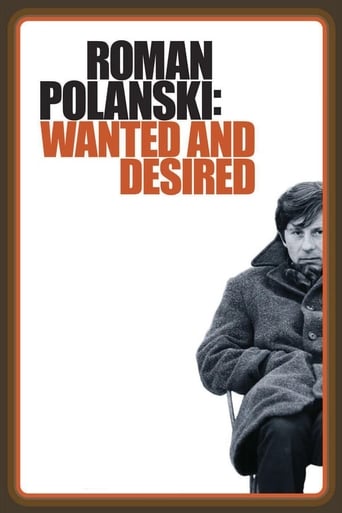

This documentary has an assemblage of facts and film footage that appear to have been thoroughly scrutinized. Part of the footage included defense attorney Dalton's explanations of how and why Polanski was forced to sign a document of guilt when he had clearly stated over and over again that he was innocent of the charges. Opening questions and answers from transcript testimony about the event seem to show two different stories being told. The facts were carefully presented so as not to side with either party but to recount the events leading up to and subsequent to the charges filed against Polanski. Sensationalism seems to be a big part of our culture's persona and we can choose to be swept away by our emotions or we can begin to put aside our filters of prejudice and fear and come to terms with actual events without theater calling the shots. This is the question that is haunting me after seeing this film.
... View MoreThere's no point arguing about this blight on the life of Roman Polanski. People's opinions are strong on both sides. He is a controversial figure and that will never change."Roman Polanski: Wanted and Desired" takes a biased look at the child molester case against the director. The interesting part is what went on behind the scenes with Judge Rittenband, the Judge ultimately removed from the case.Frankly, if all of that is true, which I guess it is since the Judge was removed, I can't blame Roman Polanski for running. Even the District Attorney assigned to the case said the same thing.The documentary points up the difference between the European and American cultures, and a psychiatrist who examined Polanski speaks of what may have caused his interest in young girls. I'm not sure if he still has such interests, but he has been married now for 24 years to actress Emmanuelle Seigner, and they have two children.The victim was a very pretty young girl with show business ambitions. She developed into a lovely woman and went on to marry and have a family. She was interviewed and it was pretty obvious in this documentary that she's sick of the whole thing and people's opinions about it. She feels her mother was unjustly criticized for allowing her to spend time with Polanski.I haven't walked in her shoes, which must have been pretty uncomfortable, so I am in no position to judge. I thankfully was never in her situation as a teenager, never went through schoolmates knowing what happened, never went through the European press publishing my name and having reporters looking for me. The fact that she went on to build a gratifying life is a remarkable achievement.And I haven't walked in Polanski's shoes, also I'm sure very uncomfortable. I can't pretend to judge a man who lost his parents in a concentration camp and his wife and baby in a brutal, sadistic murder. I didn't have to put up with horrendous things being written about me and his wife in the press after the murders. That he has been able to make any contribution at all to his art form is remarkable.So I don't come down on either side. As far as the documentary, I found what the attorneys had to say fascinating. If you have any interest in the law, you will find it interesting.
... View MoreIt's the mark of a civilised society that, no matter how terrible the crime of which you are accused, you are entitled to a trial in accordance with due process; and although some perpetrators may sometimes escape the full consequence of their crimes by playing the system, that's better than mob rule, or a judiciary with arbitrary powers. In this sense, Roman Polanski was badly treated: convicted only of sexual intercourse with a minor, the outcome of due process was unacceptable to public opinion, so in sentencing, the judge ignored the law. Polanski fled the U.S and has never returned (although since this film was made, he has been arrested in Switzerland and faces extradition). On the other hand, while only convicted of a minor offence, this was due to a plea-bargain agreed by the state because of the reluctance of the alleged victim to testify; had Polanski been tried and convicted of all charges (including rape), he would have gone to prison for a long time whatever the judge. But that trial did not occur and the verdict it would have returned is thus unknown. The story may not be a happy one; but Polanski is as entitled to impartial justice as anyone, and did not get it.The backdrop to all this is a culture in 1970s California of young women making themselves available freely to rich and attractive men. The joke was that the prosecutor, a Mormon, was selected because he was the only lawyer in the office who hadn't committed the same offence himself. You may feel this is only natural, and that Polanski was just unlucky to be picked out for persecution for doing a very normal thing; or that the whole culture was rotten, and "why me?" is not an adequate defence. And remember that the original charge was of rape. The most disturbing thing I found in this entire film was a defence put together by some of Polanski's friends, who criticised the victim's mother: Polanski, they argued, was known to like sleeping with young women, so what was the mother doing in introducing her daughter? The assumption here, that Polanski was obviously have sex with a thirteen year old if given the chance, and that it was everybody else's responsibility to make sure this didn't happen, is enough in itself to make a little part of you wish Polanski was sent to gaol for life.Marina Zenovich's film tells Polanski's extraordinary life story (of which the trial is only one part), has interviews with all the right people, and is consistently revealing. Because the tale ends with judicial manipulation, it induces a kind of sympathy for Polanski he probably doesn't deserve. On one hand, he has had a tragic life. On the other, he does appear to be a man who believes his own talent and sexual magnetism give him carte blanche to do whatever he can get away with. One thing is clear: neither he nor his victim got justice.
... View MoreDesired in Europe and wanted in the U.S. That says it in a nutshell, doesn't it? This documentary finally got released on DVD before it ever came to a theater near where I live. I'm glad I saw it on this DVD release first because there are so many additional interviews in the extras it nearly amounts to another feature. The extra interviews, though I understand why they didn't use them in the film, certainly paint a good picture of what Roman Polanski is like as a person, probably better than anything I've read or seen about him. Mia Farrow and Robert Evans have particularly touching recollections.The film, of course, focuses on the legal proceeding against Polanski in Santa Monica Civic Court back in 1978 for his unlawful sex with a minor. The judge wanted it to be for a stronger charge, but he soon found because of the plea bargaining on behalf of Polanski and his lawyer, that unlawful sex would be what was pursued. What is amazing about this film is that literally everyone who was connected with the case (with the exception of the girl's mother who is on camera in other footage and Judge Rittenband, who has died) was interviewed. Every aspect of the events and legality of the case was gone over in such accurate detail that it could be used as evidence in a court of law. In fact, it was, resulting in no change in Polanski's situation, but more on that later.Now, certainly Polanski is guilty of having sex with a minor, a charge he admitted to in the plea bargain, but what is not so clear is exactly what happened that night since the only two people who were there were the director and the 13 year old girl. Polanski's deposition and the girl's seem to match up pretty well in terms of point by point about what happened that night at Jack Nicholson's house, but whereas Polanski claims it was consensual, the girl says she told him she didn't want to have sex with him. She also said she doesn't remember much of what happened and so much of what Polanski is accused of is based on conjecture. Yet, consensual or not, Polanski still had sex with a 13 year old girl, and that is a crime. And though, crime that it is, after watching the film it became clear that America's puritanical roots were the driving force behind this whole affair. No other case in U.S. criminal history so clearly illustrates this fact about the difference between American and European morals. The people in the documentary who were interviewed in France agreed that in Europe, Polanski's having sex with a younger girl (particularly one who was not a virgin and was apparently pretty open about sex and her body), would not amount to much in legal terms. If he had done something that concerned money in Europe, such as stealing from a film production, they would have been up in arms. But with sex, Europeans (with the exception of the UK it seems), are much more relaxed. Sex is just not that big of a deal.What is made completely clear by everyone who was interviewed, including the girl, is that legal injustice was done on the part of an overzealous, despotic judge, Rittenband. Both the defense and the girl's lawyer himself all say that Rittenband and the media were behind the attempt to throw the book at Polanski. No one sides completely with Rittenband and they all say he was not to be trusted. Suffice to say, no matter how you feel about Polanski, Rittenband acted not only in his own self interest, but did things that were clearly against the law and would never stand up in court today.
... View More